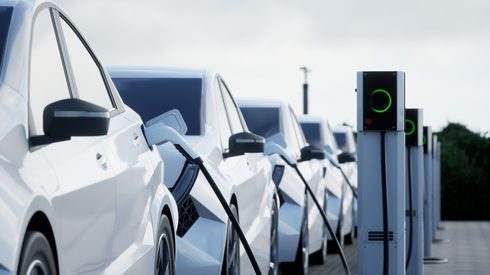The agreement with one of the world’s largest producers of responsibly sourced nickel, and cobalt, secures 25,000 tonnes per year of contained nickel for use in GM’s Ultium battery cathodes. This amount of contained nickel is reportedly sufficient to supply around 350,000 electric vehicles (EVs) per year.
Under the terms of the agreement, initial deliveries are targeted for the second half of 2026.
Fastmarkets’ assessment of nickel sulfate, cif China, Japan, and Korea was $6,455 per tonne on Friday November 18, up 14.8% from $5,623 per tonne the previous week.
The material will come from a proposed plant at Bécancour in Québec, Canada, which will be a first-of-its-kind fully domestic nickel sulfate facility for the North American market.
“This is a momentous agreement for Vale Base Metals that brings a key partner in GM into this first-of-its-kind facility for Canada and North America,” Vale executive vice president of base metals Deshnee Naidoo said in a statement.
“The proposed nickel sulfate project would utilize high-purity, low-carbon nickel from our Canadian refineries and is a natural extension for the business, offering diversified sales and a fast entry and anchor point into the North American electric vehicle market,” she added.
In the United States, the enhancement of domestic production of official “critical minerals” such as nickel is crucial in achieving new EV battery production tax incentive thresholds due to their inclusion by reference in the Inflation Reduction Act.
The Inflation Reduction Act contemplates a $7,500 tax credit for EVs meeting specific critical minerals criteria.
To fully obtain this credit, by 2027 at least 80% of the lithium, cobalt, nickel, manganese and graphite used in EV battery production must be extracted and processed in the US, or a country with which the US has a free-trade agreement.
Achieving the thresholds for the tax incentives is considered by many to be crucial to a successful EV transformation. Studies show that tax incentives are a major driver of consumer demand for EVs because without them, consumers are more likely to choose traditional internal combustion engine cars.
But the new thresholds are so high compared with present production capacity (both domestically and with free-trade partners) that achievement of the incentives is questionable in the near-term and may result in other countries reaping the economic benefits.
There are unresolved questions about how supply chains will meet the rising demand. Only a small number of US free-trade partners have battery manufacturing capabilities or produce officially identified critical minerals.
The context highlights the importance of Thursday’s announcement from Vale Canada.
Additional extraction of critical minerals such as nickel from US free-trade partners is the only way that GM and other automakers will be able to achieve the benchmarks necessary to receive the tax incentives.
Vale Canada is one of the world’s largest nickel producers and a leading producer of copper and cobalt. The company is headquartered in Toronto, Canada, and has operations in Newfoundland, Labrador, Ontario, Manitoba, Indonesia and Brazil.
It is a wholly owned subsidiary of Vale SA, one of the world’s largest multinational mining and refining conglomerates based in Brazil.
GM is a global automotive conglomerate that produces vehicles under the Chevrolet, Buick, GMC, Cadillac, Baojun and Wuling brands. The company has committed to an all-electric future.
Keep track of the dynamics and volatility in the nickel market on our nickel market page.




